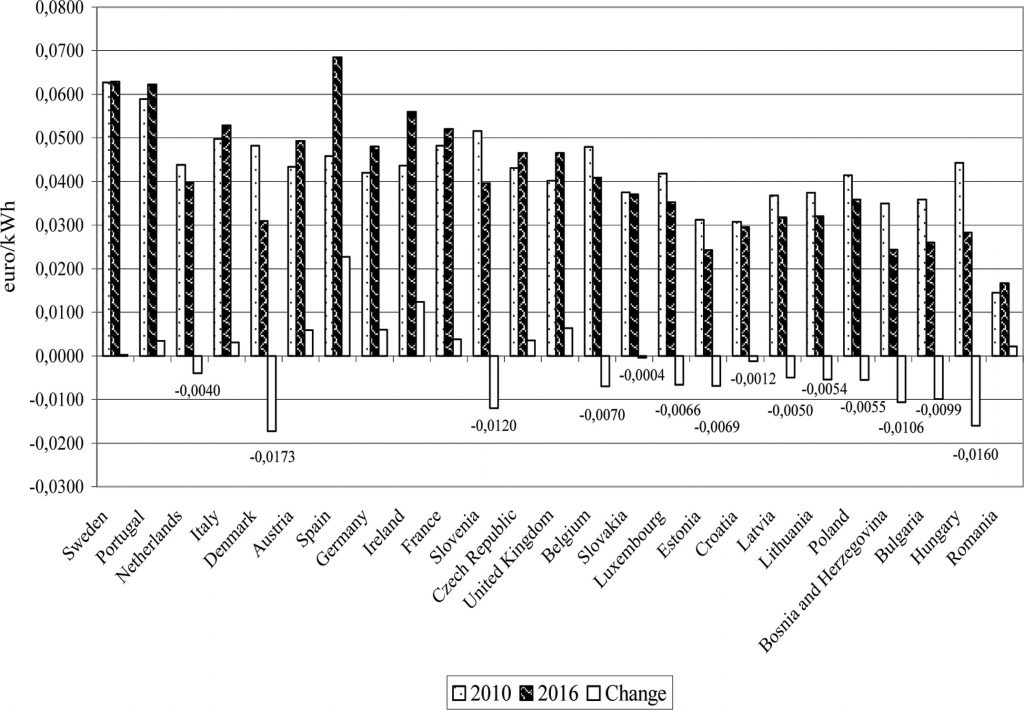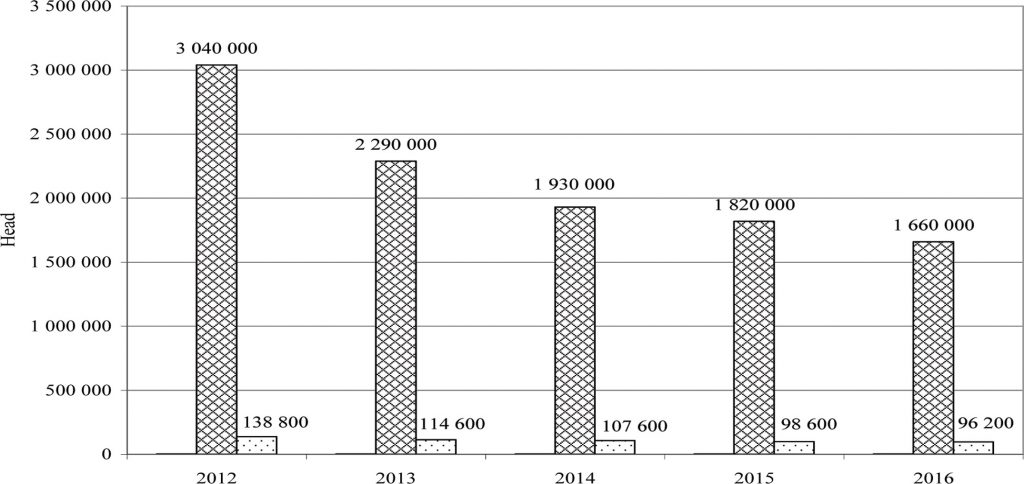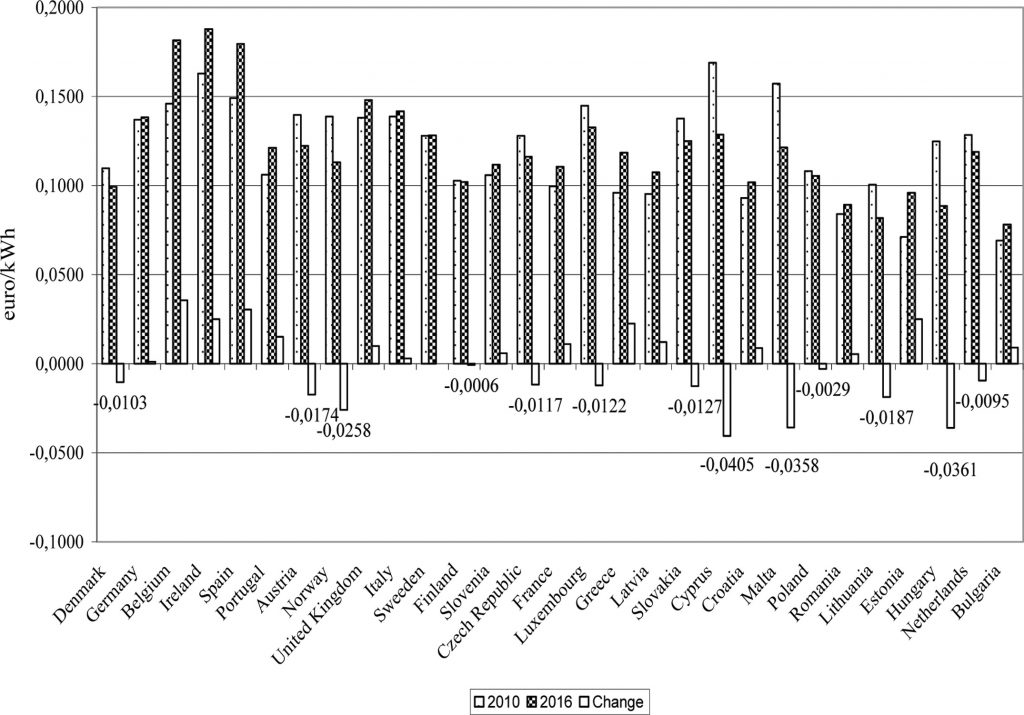Lean governance and utility price-cutting policy
I. Introduction
The financial and economic crisis and the experiences gained during it’s management confirmed the paradigm, that the state should take advantage to fulfill roles of value creating and protecting in political, economic and social areas to put the abstract system of norms of commonwealth into practice.1 The attention is called to the fact that we should recognize the need to set up a system of disciplinary interrelationships in economics to offset the challenges posed by the globalized world economy and by economic management, and this requires a new approach and practices in Hungary.2 This does not mean a separation from the society, it is quite the opposite: through the autonomy the state is working towards economic and social development on a mandate secured by wide social integration, cooperation with various representatives and organized groups of stakeholders – inter alia the National Consultation serves this purpose.
II. The National Consultation as a new instrument to represent collective values
Decision-makers should always be aware of the effects of their decisions, measures, even non-acting not just on the whole community, society but on every single citizen as well. They should operate a decision-making system which – beside analyzing rationality of various economic or other professional aspects – is taking the chances of affected individuals into account, therefore the decisions do not become impersonal. 3 Contrary to schools of New Public Management became popular in the past the concept of Collective Values offers the opportunity to think about the objectives and performance of policy making in a useful way. At the same time it makes the performance and efficiency of all activities measurable which are carried out directly or funded by the state serving community goals (also including services funded by the state but actually managed by private enterprises or non-profit organizations).4 Collective Values have indicators with a much broader horizon than ever used by public management theories (including the latest additions in the newest public management concepts), because it is also tracking the changes of public trust and legitimation beside performance evaluation.5 Additionally, it is also raising the issues of fairness, morality and transparency. The currently applied New Public Management theories in our country mostly do not address or do not give the necessary emphasis to these components and their economic and social consequences.6 We can make a mistake, if we want to evaluate the quality of public governance, the whole system or just a slice, a project of public services solely based on traditional financial indicators: this way we would only support areas which do not produce real value, and vice versa, we would not secure funding for areas, which could create value.7 Previously, to identify public interest New Public Management theories used the aggregation of individual preferences represented as a collective need.8 Many of us clearly remember of the bluff called „system change towards social welfare”, which is constructed the same way. However, this method mirrored the real perception of the society significantly distorted or manipulated therefore a much more sophisticated method was needed, which identifies individual and collective preferences as a result of collective consideration and referendum. This is a unique feature of the concept of Collective Values, which is applied in several countries as well.9 The clear objective of the National Consultation is that the most important measures planned for the country should be made on direct consultation with the constituents, with the society. The Central Office for Administrative and Electronic Public Services is evaluating the questionnaires used in National Consultation, initially coordinated by the Prime Minister’s Office, later by the Cabinet Office of the Prime Minister. Around 920 thousand replies are registered for the questionnaire created for the Constitution in February 2011. More than one million replies were registered for the questionnaire sent out in May 2011 concerning social issues which included questions about elderly people, FX-loan borrowers, public utilities and education supports. Around 700 thousand people completed and sent back the „Economic questionnaire” which were sent out in September 2012 and included questions about taxation, social contributions, large enterprises, public utilities, minimum wage, pensions and FX-loan borrowers. In May 2015, the questionnaire related to terrorism, refugees, migrants and the European Union were completed and sent back by nearly one million people again.10 Finally, record high number of participants were registered in April 2017, when 1 million and 680 thousand people returned the questionnaire called „Let’s stop Brussels!”11
In this case, the clear objective of the National Consultation was to provide information for the government, how many Hungarian people and what extent do they support the position of the government against decision-makers in Brussels in terms of utility price-cutting policy and integration of the migrants. Of course, Hungarian people are aware the most of the Hungarian interest, that is why it was decisive for Hungary to maximize the participation in the National Consultation initiated by the government.
III. Objective of lean governance
Objective of lean governance is, to continuously improve productivity and efficiency of public governance in course of serving the citizens, to filter and cease elements of service portfolio deemed redundant and inefficient in the process of service provision12. At the same time, to continuously increase level of quality and cost-efficiency of services provided for the citizens on the whole. This is far from a simple task in practice, because – for example- to increase number of government windows can obviously reduce average waiting and processing times, and the number of clients per clerk, and this also gives an opportunity to increase level of quality in the administration, but to create new government windows can significantly raise the costs, it can bring down the cost-efficiency. This way, to apply methods of lean governance can actually be a main supporting tool for value-creating and value-adding in practice. On the whole, lean government methods are therefore applied in the right way, when they result in increased capacities of the government, and more services can be provided on a single expenditure unit on the same (or higher) quality level. Another advantage of applying lean governance methods is, that they lead to a better understanding of interconnection of the processes, and consequently, they make the identification of bottlenecks faster and thus they make the implementation of developments more efficient and faster. As a final outcome, they contribute to create a culture which supports continuous development.13
To maintain competitiveness and market position certain multinational enterprises are setting cost level bearing in mind that they cannot afford a price increase in terms of their products or services, the only way is to go down.14 Consequently, several methods applied to increase efficiency and productivity of manufacturing processes (e.g. VSM, Kaizen, 5S, Six Sigma, etc.) can also be utilized in public administration.15 Professionals call this lean governance. The Hungarian government recognized that all these methods can be applied successfully in case of public utility services either. In terms of lean governance in Hungary the process of utility price-cutting is of utmost importance, thanks to which the cost level of several public services could be successfully reduced and as an effect of the utility price-cutting policy customer arrears against utilities remarkably declined.
Managers of privatized public utilities are trying to keep investments from own sources to the minimum to maximize (short term) profit (e.g. minimizing number of employees and development expenditures) and they offer their services at the highest price possible, which is usually achieved through increasing service charges or in another cases, reducing scope of services, level of quality, range of clients or through using all these methods combined. From this point onwards the real value of services for the given community, to increase quality of life of citizens would become totally irrelevant.16 However, the European Union would still consider privatization, commercialization and energy union the only ways to improve public services.
Therefore it was time to give room and opportunity for other type of solutions – otherwise well known both inland and abroad and applied successfully in many locations – primarily to regulate non-profit services, price and quality much more strictly than before.17 The main objectives should be to accumulate residential savings and limit the profit of public service providers. In this spirit, the Hungarian Government intends to implement long term reforms which aim to maintain state-provided non-profit public services in the areas of drinking and waste water, gas, electricity, district heating, waste management and public catering.
IV. Objective and rationale of utility price-cutting policy
By analogy with corporate finance, household finance asks how households use financial instruments to attain their objectives. Household financial problems have many special features that give the field its character.18 Shortly prior to the recent financial crisis, U.S. households tended to invest more in stocks and less in homes and to have larger mortgages than Europeans of similar characteristics.19 In the Hungarian population households must spend on average 81% of their income on everyday expenditures, mostly (32%) on overheads (utility services) and food-stuff (31%). According to one of the oldest economic theorem, the Engel’s law, higher income entails a relatively lower rate of food expenditures. Therefore VAT cuts of basic food items are especially important for population on income below average. Beside providing a yearly saving of several ten thousand forint it secures the daily existence for the vast majority of the population.
Structural analysis of household consumption also reveals that overhead costs amounted to quarter of total expenditures according to a survey from 2005, the rate increased to third however by 2012. Overhead costs rose drastically within households expenditures in the eight year period before 2012. Over the 8 year period of regimes before 2010 certain public utilities were allowed to raise prices 15 times. As a result of this residential energy tariffs increased more than the average price level. Price of pipeline gas increased the most.
For example, gas price increased significantly in Hungary in 2007 when global prices dropped. As a result, gas price in our country were one of the highest in Europe by 2010. Therefore, the new government formed in 2010 started to implement the utility price-cutting policy. Main objective of this program was to achieve a price level for utility services which is affordable for the families. Hungarian families should have access to energy at the lowest price in European comparison. Of course a minimum profit should be secured for the utilities as well, to have a certain margin to maintain service security and to improve service quality, but not in the excessive, uncontrolled way, like they want to do.
The first phase of the utility price-cutting commenced on 1st January 2013 in Hungary. At this moment, there was a 10 percent cut in the price of gas, electricity and district heating, and this measure was followed by further suggestions and measures in terms of residential bottle gas, waste management, drinking, wastewater and chimney-sweeping services.
A law for utility price-cutting was enacted on 29th April by the Parliament.20 As a result of the implemented utility price-cutting measures price of natural gas was cut 25,19%, price of electricity was cut 24,55% and price of district heating was cut 22,63% overall in three steps in 2013 and 2014. There was a 10% cut in the prices of drinking and waste water services, bottle gas, waste management and chimney-sweeping services respectively.
In terms of natural gas prices our country was ranked 17th in Europe so far in first half of 2010 according to EUROSTAT data, but in 2016 we recorded the second lowest natural gas prices, and measured from 2010 Hungary was second after Denmark in the extent of gas price reduction. In terms of residential electricity tariffs our country was ranked 16th as yet in 2010, but in 2016 it was the third cheapest.
Thanks to the utility price-cutting the residents in our country were able to save 642 billion HUF between 1st January 2013 and 31st December 2015. Consumers saved the most (278 billion HUF) on the electricity bills, in case of natural gas residential consumer savings totaled 240 billion HUF. At present, the yearly saving sum of the population is 268 billion HUF altogether.
Based on data from Hungarian Energy and Public Utility Regulatory Authority, a yearly saving sum of a married pensioner couple ranges between 83-116 thousand HUF, while the sum of a family with two kids ranges between 109-112 thousand HUF.
In our country overheads, rent, mortgage payments arrears are most common housing related problems. According to a research conducted in Europe 26% of the population or 2,6 million households have payment arrears. Occurrence of this is much more higher in case of public utilities (2,3 million people) than in case of rent or mortgage (680 thousand people). 63% of people living under the poverty threshold did have some kind of arrears, which meant the worst ranking in the EU in 2013.21
Overhead cost-cutting also had a favorable effect on the trend of arrears accumulated in the past. In case of natural gas, electricity and district heating total sum of account arrears dropped 48% between 2012 and 2016. At the same time both the number of households generating new arrears and consumers switched off significantly decreased in recent years. Between 2012 and 2016 number of households generating new arrears fell 45% and number of consumers switched off dropped 31%.

Figure 1: Gas prices for domestic consumers
Source of data: EUROSTAT
V. Price freeze versus price cap regulation
This is not the first instance that other countries take over initiatives which was first implemented in Europe by the government led by Viktor Orbán. Total privatization of the energy and utility sector and thus steeply increasing energy price is not a unique phenomenon in Europe, but it seemed that more powerful countries of the continent managed to control these service providers so far. However, the British Labor Party was campaigning with cutting energy prices in the 2015 general election in the United Kingdom. In the 2015 British election campaign the leader of the British Labor Party promised to voters to freeze overhead costs for residents and family-owned enterprises for 20 months, if forming a government. In the opinion of Ed Miliband energy firms are billing more than justified for long, and they are able to do that, because there is no adequate level of competition on the market. In an open letter the politician urged energy firms to support to achieve his plan.22 However, energy providers reacted furiously to the idea: in their mind such a decision could even entail power-cuts.

Figure 2: Number of households generating new arrears fell and number of consumers switched off dropped between 2012 and 2016
Source of data: HORVÁTH Zoltán (2016): A rezsicsökkentés eredményei. Nemzeti Fejlesztési Minisztérium. VDSZ konferencia. Budapest, 2016. december 1.
According to British consumer protection organizations more and more pensioners and families on low income are unable to pay utility bills. In the 2016 report the CMA stated, that in the United Kingdom 90 percent of domestic energy consumers switched off are unable or not willing to change energy provider23. This means that market mechanisms do not operate properly at all, and they are not providing the necessary control over service providers committing abuse of their dominant market position, and they are not providing high level enforcement of consumer interest. Therefore beside the Labor Party – not accidentally –also the Conservatives did promise to British voters to freeze household energy costs if securing majority in the general election in June 2017. The Conservative Party – if winning in June election – promised to intervene into the price calculation of gas and electricity and would restrict the opportunity to raise prices for two thirds of British households. Nevertheless, policy-making of the right-sided Conservatives somewhat differed from the Labor Party, as they did not promise to freeze prices but to introduce a new price cap regulation for the voters. In their opinion their concept is able to react much more flexible to changes in market conditions. According to certain group of analysts this solution would cut the profit 332 million pounds and cut the annual salary of the CEO 4,2 million pounds in case of one of the largest energy providers. In 2016 Centrica made a record profit before tax in the excess of 2,2 billion pounds.24
Another interesting development in this case that six large British energy providers took on a price freeze of standard gas and electricity until a minimum of a six month period until April 2017, reacting to the scandal regarding Scottish and Southern Energy (SSE). Through the above they offered a 100 pound saving and one of the lowest price on the market to consumers. The announcement of SSE which has 8 million consumers surprised the other energy providers, who – before the winter- much more expected a further rise in prices. The initiative of SSE was not followed by any other actions until present, most of them did not even react to this peace of news, while others like the British Gas and Npower and the French EDF sent only a message through their spokesmen, that they are continuously reviewing their prices. Journalists ended their report in a comic fashion, that they will inform the public on any development in the topic, but from November 2016 not a single announcement was made from any other energy providers.25
There was a 10 percent cut in Czech Republic as well, and smaller reductions occurred in Bulgaria and Germany either26. Despite all these however, apart from Hungary an increasing trend of gas and electricity prices still remained in the European Union.
VI. Conclusion – The European Commission believes solely in market principles
The SZÁZADVÉG research institute conducted a public opinion research by phone using a questionnaire, in the course of which 1000 randomly chosen individuals were interviewed between 26th-30th April in 2013.27 According to research results a significant majority of the Hungarian population have already heard the criticism towards utility price-cutting measures. Overwhelming majority of the population (59%) who have already heard of the opponent parties’ critics of utility price-cutting do not feel these justified. Based on this research it also can be stated, that after the ongoing criticism overwhelming majority of the population (82%) still supports utility price-cutting to the same extent or even more than before. A little more than one out of ten (11%) supports such measures to a lesser extent as an effect of criticism.

Figure 3: Electricity prices for domestic consumers
Source of data: EUROSTAT
On aggregate, the public opinion research conducted by SZÁZADVÉG in April 2013 confirmed, that a decisive majority of the population do not feel the criticism towards utility price-cutting justified. Public support of the measures is still high.
Against the spirit of founders establishing the European Union the European Commission intends to decide more and more questions on supranational level. Bureaucrats of Brussels want to take the chance from nation-states away to be able to decide independently way on how to control public utilities.
This issue has been granted a part in the consultation, because the European Commission put a proposal named Energy Union to the table, which would remove the right to determine price of electricity from nation-states.28 Pursuant to the proposal member states should create a roadmap „to dissolve all regulated cost element”- This would practically mean the end of utility price-cutting policy, and additionally, large enterprises would have a free hand again to determination overhead costs. Instead of Hungarian families this concept would favor the multinational enterprises again, therefore the government is definitely against it.
Despite the facts the European Commission seems to be willing to believe only in market principles and does not want to consider other alternative solution. To support private stakeholder enterprises in the industry the European Union opened an attack against the process of the Hungarian utility price-cutting policy, for the preparation of which other member states became under similar investigation either. 29 Practically, the verdict has already been issued: at the start of the investigation inspected states stepped up with abuse of their power and have compromised sustainability of operation of private utility enterprises. Until present the EU has not launched a single infringement procedure against any private energy provider or utility in case of abusing of power or even harming consumers through overbilling or charging for unnecessary, wasteful expenses.
In a written statement the European Commission argues that market liberalization entails lower prices. On the contrary, own previous reports of European Commission clearly reveal, that residential electricity prices increased 20% on average between 2010 and 2015 in EU member states (50% in the UK, 37% in Portugal). In case of residential gas prices the picture is even worse: in the 5 year period consumer prices increased 25% on average in the European Union (72% in Spain for example). Meanwhile, in Hungary overhead costs decreased the most in European comparison.30
According to domestic experts representing the position of the European Union the centrally coordinated utility price-cutting is less successful than market coordination proposed by the Union. In their opinion, compared to Czech Republic and Slovenia – where the residential market is fully liberalized – Hungarian prices decreased in fact significantly less, and nominally there are only slightly lower than in countries, where prices are fully liberalized.31
On the contrary the truth is, that at present energy prices are globally the highest in the European Union especially in countries with a fully liberalized market, and in recent years prices increased the most in these very countries, for example more than 50 percent in the United Kingdom.
In terms of price niveau Slovenia was ranked 13th lowest in 2010, but it dropped back to 17th until 2016. Price of electricity used in Czech Republic were higher than in 16 countries in 2016. All above clearly justifies, that market liberalization is not a solution to reduce prices at all, and it’s not even efficient to apply the necessary control either.
According to Kaja Kallas – Estonian member of the European Parliament – they have already had experiences with the system proposed by the EU, which resulted in decreasing overhead costs in her opinion. Undoubtedly, Estonian electricity prices were third lowest in 2016 in European comparison. But in 2010 there were yet second lowest. Thus their position in fact has not improved, but worsened as opposed to Hungary, whose position improved in turn significantly. Between 2010 and 2016 the largest drop in prices could be witnessed in Cyprus, Hungary and Malta.
In most cases utility price-cutting is made at the expense of the extra profit or service providers, therefore they fight against it using every weapon also involving leading politicians of the European Union, leaders of certain institutes, professionals and journalists willing to serve their interests both inland and abroad. On lobbyist pressure of utilities bureaucrats of the European Union have prepared a total offense. They want to introduce a uniform EU regulation, which would eliminate any price regulation, price limitation opportunities for member states. Hence, for the sake of indefinite profit generation utilities would even be allowed to increase prices of gas, electricity and other utilities on multiple occasions in a year at the expense of consumers. We could get into the situation, where we got in the era of governments before 2010, namely, overhead costs would drastically increase, after paying utility bills we could make less savings or could spend less to improve quality of life, to renew our knowledge, on healthier lifestyle, recreation, relaxing, to spend free time with more content.
Likely, not every member state could be able to do what Hungary did, namely, to reduce energy prices for residents, then for the industry, finally for the whole economy with help of state regulation. We obviously do not want however, to remove the instrument from ourselves, which led to significant results. Therefore, Hungary should step up the most determinedly for current position and for the process of utility price-cutting and should not surrender of instruments to regulate energy prices by the state. When a unified energy market is eventually established, which would entail price reduction for consumers, then it should be attractive for Hungary as well to create such an economic environment. Until then however, the European Commission should finally prove to the citizens, that it is able to serve their interests as opposed to the profit interest of a tight lobby group. In the future it should step up against private energy providers and utilities, which abuse of power, harming consumers through overbilling or charging for unnecessary, wasteful expenses. With the support of the European Union they commit consumer abuse to realize extra profit.
Dr. Novoszáth Péter
Candidate of Economic Sciences (CSc.),
Associate Professor,
Administration, Research Centre of Public Finances
Faculty of Political Sciences and Public
National University of Public Service, Budapest
References
1. NOVOSZÁTH Péter (2017): Az új közgazdasági és pénzügyi szemlélet térnyerése a közszolgálat területén TAYLOR: GAZDÁLKODÁS- ÉS SZERVEZÉSTUDOMÁNYI FOLYÓIRAT: A VIRTUÁLIS INTÉZET KÖZÉP-EURÓPA KUTATÁSÁRA KÖZLEMÉNYEI (ISSN: 2064-4361) IX. évfolyam (2. szám) pp. 48-55.
2. ZÉMAN Zoltán (2016): Új lendületben a gazdaságtudomány POLGÁRI SZEMLE: GAZDASÁGI ÉS TÁRSADALMI FOLYÓIRAT 12:(1-3) pp. 202-207.
3. NOVOSZÁTH, Péter (2011) A közszolgálati menedzsment legújabb irányzata: a közösségi értékteremtés. Gazdasági élet és társadalom 3:(I-II) pp. 341-357.
4. BLUMNÉ Bán Erika, EPERJESI Dávid, DR. ZÉMAN Zoltán: Value Analysis of an Event – Value Analysis in Event Organizing In: Zéman Zoltán (eds.) Controller Info Studies 220 p. Budapest: Copy & Consulting Kft., 2014. pp. 17-21. (ISBN:978-963-08-9751-8)
5. MULGAN, Geof (2008): Public value, reform and innovation. Prime Minister’s Strategy Unit
6. COLE, Martin – PARSTON, Greg (2006): Unlocking Public Value; A New Model for Achieving High Performance in Public Service Organizations; John Wiley & Sons, Inc. Canada, 2006. p.188
7. MOORE, Mark H. (1995): Creating Public Value – Strategic Management in Government. Harvard University Press. Cambridge Massachusetts, London, England. p. 402
8. LENTNER Csaba Közpénzügyek és államháztartástan Budapest: Nemzeti Közszolgálati Tankönyvkiadó, 2014. 341 p. (ISBN:978-615-5344-38-1)
9. For example in United Kingdom, see more detailed work by MULGAN (2008)
10. Nemzeti Konzultáció – Wikipédia https://hu.wikipedia.org/wiki/Nemzeti_konzult%C3%A1ci%C3%B3 13/6/2017
11. Magyar Idôk (2017): Részvételi rekordot hozott a Nemzeti Konzultáció. Magyar Idôk, 2017. május 31. http://magyaridok.hu/belfold/reszveteli-rekordot-hozott-a-nemzeti-konzultacio-1771627/ 13/6/2017
12. MILLER, Ken (2009). The Promise of Going Lean, Governing, May 21, 2009
13. GRAHAM, Richard (2008). Performance is the Best Politics: How to Create High-Performance Government Using Lean Six Sigma, HPG Press, 2008.
14. ZÉMAN Zoltán (2016): A kontrolling fejlôdéstörténetének fôbb irányzatai. [Development of Controlling Trends] GAZDASÁG ÉS TÁRSADALOM 2016: (2) pp. 77-91.
15. VENEGAS, Carlos (2007). Flow in the Office: Implementing and Sustaining Lean Improvements. Productivity Press
16. KECSKÉS András (2016): A felelôs társaságirányítás európai rendszere EURÓPAI JOG: AZ EURÓPAI JOGAKADÉMIA FOLYÓIRATA 16:(3) pp. 28-38.
17. BLUMNÉ Bán Erika , ZÉMAN Zoltán: Controlling a vezetés szolgálatában. Történeti fejlôdés, perspektívák TAYLOR: GAZDÁLKODÁS- ÉS SZERVEZÉSTUDOMÁNYI FOLYÓIRAT: A VIRTUÁLIS INTÉZET KÖZÉPEURÓPA KUTATÁSÁRA KÖZLEMÉNYEI 6:(1-2) pp. 439-447. (2014)
18. John Y. CAMPBELL (2006): Household Finance. THE JOURNAL OF FINANCE • VOL. LXI, NO. 4 • AUGUST 2006 DOI: 10.1111/j.1540-6261.2006.00883.x
19. Dimitris CHRISTELIS, Dimitris GEORGARAKOS and Michael HALIASSOS (2013) Differences in Portfolios across Countries: Economic Environment versus Household Characteristics. Review of Economics and Statistics Volume 95 | Issue 1 | March 2013 p.220-236 doi:10.1162/REST_a_00260
20. For more details see the Hungarian Act LIV of 2013 regarding the implementation of utility price-cutting policy
21. KOLTAI Luca (szerk.) (2014): Éves jelentés a lakhatási szegénységrôl 2013. Habitat for Humanity Magyarország 2014. p. 6, 63 pages
22. Keith BAKER (2015): Metagovernance risk and nuclear power in Britain. In Eduardo Ongaro (eds.): Multi-Level Governance: the Missing Linkages, pp 247 – 271, Emerald Group Publishing July 6, 2015, 376 pages
23. CMA – Competition & Market Authority (2016): Energy market investigation. Final Report 24 June 2016.
24. Jim PICKARD and Nathalie THOMAS (2017): Conservatives promise to cap prices in UK energy market Financial Times, April 23, 2017. https://www.ft.com/content/d6f949e2-280b-11e7-bc4b-5528796fe35c 14/11/2017
25. Lucinda BORRELL (2016): SEE freezes energy prices until April 2017 – but you can slash bills by switching. MSE News 18 Nov. 2016. http://www.moneysavingexpert.com/news/energy/2016/11/sse-freezes-prices-until-april-2017 9/6/2017
26. Magyar Nemzet (2013): Rezsicsökkentés: magyar mintára segítenek a briteken. Magyar Nemzet 2013. szeptember 26. https://mno.hu/belfold/rezsicsokkentes-magyar-mintara-segitenek-a-briteken-1186533 9/6/2017
27. The data provided in the analysis may differ by no less than 3.2 percentage points from the sampling of the result that would have been the result of questioning the adult population of the country. SZÁZADVÉG (2013) The majority, despite the criticism, also supported the reduction of the regime. http://www.szazadveg.hu/hu/kutatasok/az-alapitvany-kutatasai/elemzesek-publikaciok/a-tobbseg-a-biralatok-ellenere-is-tamogatja-a-rezsicsokkentest 6/9/2017
28. Magyarország Kormánya (2017): Összefoglaló a Nemzeti Konzultáció kérdéseivel kapcsolatban. http://www.kormany.hu/download/d/1d/01000/Nemzeti%20Konzult%C3%A1ci%C3%B3.pdf 14/6/2017.
29. SOMOGYI Orsolya (2015). Megvédi a kormány a rezsicsökkentést. Magyar Idôk. 2015. december 3.
30. EUROPEAN COMMISSION (2014): Trends and Developments in European Energy Markets 2014. Progress towards completing the Internal Energy Market; Commission staff working document Brussels, 13.10.2014. SWD (2014) 310 final p. 33
31. FELSMANN Balázs (2016): Az európai energiaunió és hatásai Magyarországra. REKK Regionális Energiagazdasági Kutatóközpont. „Energiaunió – a jövô konferencia. Zalaegerszeg, 2016. október 21. http://docplayer.hu/41682319-Az-europai-energiaunio-es-hatasai-magyarorszagra.html 14/6/2017.
@ WCTC LTD --- ISSN 2398-9491 | Established in 2009 | Economics & Working Capital

